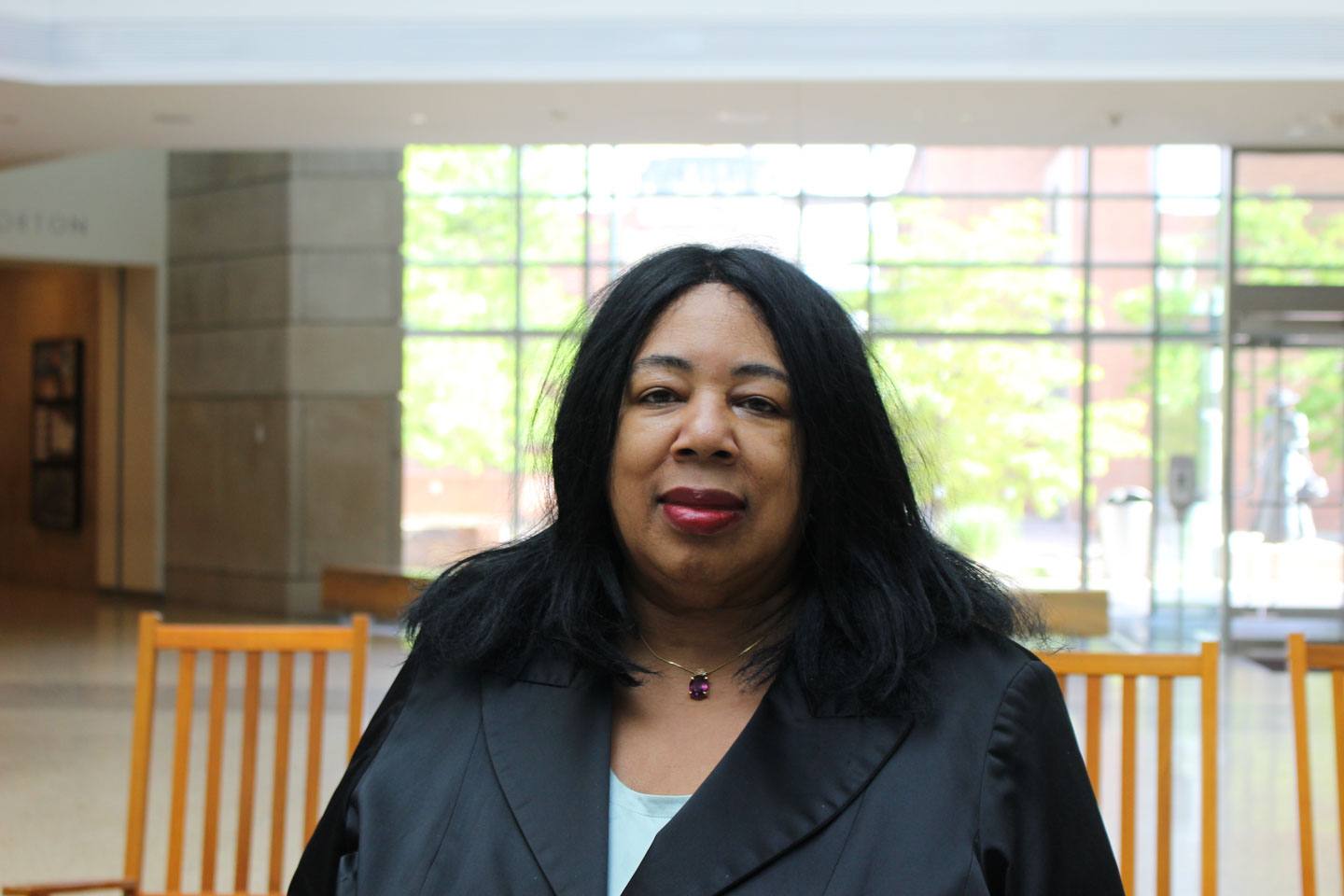The Dark Secrets of U.S. Medical Research
Leer en español
Harriet Washington addressed an audience in Denver on May 23, 2018. Photo by Rachel Mondragon
By Kristin Jones
J. Marion Sims gained renown as a doctor in the 19th century for developing a surgical fix to vesicovaginal fistula, a debilitating complication of childbirth.
Sims accomplished this by experimenting on enslaved women he had bought for the purpose. He subjected the women to excruciatingly painful procedures, repeatedly and without anesthesia, for years.
This episode isn’t an aberration in the history of American medicine.
Quite the opposite, according to science writer and medical ethicist Harriet A. Washington. In her book Medical Apartheid, she walked through centuries of U.S. history in which African-Americans have been experimented on unwillingly and cruelly. Science and medicine in this country have been used to demonize people of color and to prop up noxious racist mythologies that live on today.
“This is something that is bred into the fabric of American medicine itself,” Washington said at Denver’s History Colorado Center in May, where she was presenting as part of The Trust’s Health Equity Learning Series. Her talk will be shown again in viewing parties, along with facilitated discussions, hosted by nonprofits throughout the state.
Many of us learned that in Nuremberg, American doctors testified against the Nazi physicians who undertook hideous medical experimentation against Jews and other targeted groups.
But the U.S. history is rarely taught—or the teaching doesn’t go beyond the Tuskegee Syphilis Study, a notorious decades-long research effort in which hundreds of black men were denied treatment as their syphilis progressed.
There were other horrors. American prisoners—many of them black and all of them captive—were exposed to known carcinogens, infected with malaria, given LSD, subjected to flash burns, and had their testicles cut and irradiated, Washington found. Prison research continued for decades before succumbing to a series of well-publicized scandals in the mid-1970s.
In many of the worst historical abuses, Washington identified distressing modern-day parallels.
In the antebellum South, white doctors made up diseases—unique to blacks—to support the institution of slavery and their own racist beliefs. They pathologized the desire of enslaved blacks to run away, for instance, calling it Drapetomania. Mishandling white slave owners’ property was called Hebetude. Destroying it was called Dysaesthesia Aethiopica. Doctors lent their authority to the lie that blacks did not feel pain.
Modern-day correlates include the false belief that black women are genetically prone to having low birthweight babies, when racism and toxic stress are often to blame, said Washington.
Even more disturbingly, recent research has found that black patients, including young children, are less likely to be treated for extreme pain than whites. Why not? A 2016 study found that half of medical students surveyed believed that black people experienced pain differently than white people.
“All of these beliefs promulgated in the 18th century,” said Washington, “are still with us today. Doctors believe this. It affects how they treat people.”
Ultimately, the mistrust that many black Americans have toward health care providers can be traced to the dark and lingering history of abuse, she said.
“The system is not trustworthy,” said Washington. “So, of course people don’t trust it.”
Shifting that means rethinking the medical system, so that it can properly serve not only African- Americans, but all of us.
Washington laid out three reforms she said would be transformational.
The first is to protect people’s right to be fully informed and to consent to any medical experimentation done on them. Washington noted that there are troubling exceptions to the right to informed consent. Unconscious emergency room patients, for example, can be used as medical research subjects without their knowledge or consent. At the same time, many people in developing countries in Asia and Africa continue to be subject to research without being fully informed of the risks.
Second, laws that give corporations undue power over medical research should be repealed, she said. These include the Bayh-Dole Act of 1980, which allows university and nonprofit scientists to profit from research that is funded by the federal government, introducing a profit motive to academic medical research.
Finally, she said, lobbyists should be eliminated from health care.
“They are convincing lawmakers to pass laws that benefit their corporations and harm us,” said Washington. “That harms all of us.”
In April, a statue of Sims was removed from New York’s Central Park after community protests.
Removing his legacy will require more work.
Video provided by Open Media Foundation

